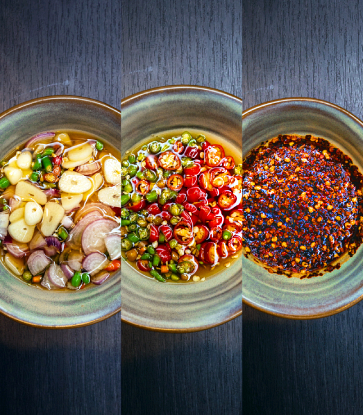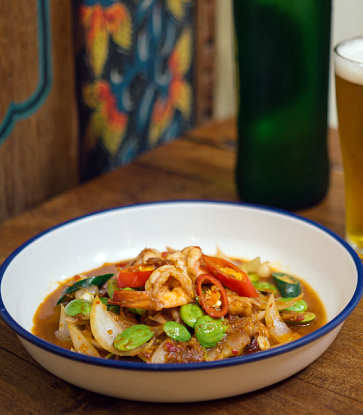In this series created in partnership with The Balvenie’s Handcrafted By campaign, we explore the pursuit of craftsmanship between MICHELIN Guide restaurant chefs and The Balvenie’s whisky makers.
The ultimate expression of craftsmanship is seen in one’s commitment, determination, and passion. For Riley Sanders, the head chef of one-MICHELIN-starred Canvas in Bangkok, this translates into an endless journey of discovery in his culinary craft.
Once a former private chef on a yacht, the 31-year-old American set foot in Thailand after years of sailing between continents, and was immediately mesmerised.
Seeking to feed his curiosity, the first destination he visited then was Khlong Toei market, the city’s largest wet market.

“It's stimulating and it's hectic and very vibrant and it’s busy. A lot of these ingredients were things that I'd never seen before,” he says. “To me, that's always something that's really exciting — to see something that you've never seen before, to taste something that you've never seen before.”
That curiosity and open-mindedness towards new ingredients and experiences are what he parlays into his cuisine at Canvas.
“All the time, we're thinking about these new ingredients that are coming in and how to use them. For me, I wanted to do something that was also a little bit different,” he says.

“I'm truly passionate about Thai ingredients, working with them, learning more about them and trying to transform them into something special. The ingredients come first.”
Not being Thai gives him a different perspective to approaching local produce. “It allows me to think about the food a little bit differently than someone that would be Thai might think about it,” he explains.
“We try to stay true to Thai flavours and we do use a lot of spice and acid and salt and sugar and seasoning. It’s heavy, spicy food,” he continues. “Yet our food tastes different, it looks different, and we're making a type of cuisine that's not really easily categorised.”
As ingenious as he is, the Texan chef personally loves trying new things and seeking new experiences - that may be travel or trying painting, or being inspired by someone else's work in a different area outside of the kitchen. And as a chef, creativity defines who he is.
In order to be creative, he keeps an open mind about new things and often asks questions. Same goes with evolution as he approaches cooking in a totally different way today, compared to a few years ago due to the passion for Thai ingredients, and also being committed to evolving creatively.
Heritage with a personal touch
For one to truly do something innovative, Sanders believes, one first needs to have a solid understanding of heritage and tradition.

“I had an experience as a child of picking blackberries from my grandmother's backyard. Thinking back on it now, I think that having that heritage of seeing those vegetables and fruits and how much respect that she had for those ingredients during those days has a big impact on me now,” he says. “That was a big part of my own development, trying to learn traditional food and going to markets around the world and learning about ingredients.”
Sanders’ respect for heritage and craftsmanship in his culinary creations makes him a fitting collaborator with The Balvenie and its Five Rare Crafts philosophy, which underpins its entire whisky-making process, from cultivating its homegrown barley, to using traditional maltings and copper stills, with expertise shared by its own cooperage and malt master David Stewart.
“Heritage, to me, is thinking about your past and having respect for that.”

Flavours from the wild
To express this philosophy, Sanders created two dishes that pair perfectly with The Balvenie whisky.

The first, simply named “Wild Mushrooms”, features not only wild mushrooms, but “things that are growing in the wild, in the forest, in the jungle”, such as wild chestnuts, wild coriander and mao berry from the Sakon Nakhon region, the latter flavoured with mildly numbing Mah Kwan wild pepper from Mae Hong Son in the North of Thailand.
Paired it with: The Balvenie 12 Year DoubleWood whisky
“I was inspired by the forests of Northern Thailand and its heritage ingredients which are often overlooked. Craftsmanship is a key part of cooking, and we intended to craft a dish that would reflect our identity as Canvas, while also staying true to the craftsmanship of the whisky and complimenting the flavours of the Balvenie 12 Year DoubleWood whisky. The whisky has a taste of sweet spice and vanilla and a little bit of a fruity note. These are all flavours that are also present in the dish that I think are going to pair really well with the whisky,” says the chef.

A celebration of banana
A second dish, which features five different types of banana, is what chef Sanders refers to as “a celebration of banana” and the different ingredients that pair well with it.
“This dessert features several preparations of several types of banana. We took the concept of having a single main ingredient, transformed into something unexpected,” says the chef.
It features an ice cream that's made from egg banana or guay kai; shaved ice made from Lady Finger banana kombucha; a banana custard that's made with bananas that are roasted in banana leaf with some palm sugar; a varietal of banana known as gluay hom which has been freeze dried and the gluay hak muk varietal, which is made into chips.
The dish is held together by a banana juice that is extracted for four or five hours to produce a clean, banana flavour.
Pair it with: The Balvenie 17 Year DoubleWood whisky
“The banana itself is very versatile and when we flavour the banana with some clove, safflower and palm sugar, it matches that flavour of the honey, sweet spices, caramel, spiciness and the oakiness in the whiskey that come together harmoniously,” says Sanders.
Craftsmanship is reflected in this dish through the variety of cooking techniques used to bring out different qualities of different types of bananas. And beyond the flavour pairing, Sanders’ respect for heritage and craftsmanship in his kitchen also has many parallels with The Balvenie’s handcrafted ethos when it comes to whisky-making. The Balvenie is the only distillery in the Scottish Highlands that still maintains the Five Rare Crafts in its whisky production process, which encompass the use of home-grown barley, the traditional maltings, in-house maintenance of its copper stills, in-house cooper, and the expertise of its resident malt master, David Stewart.
Strongly believing that experiences are something that should be built upon, Sanders and his team have made an effort in research and development since the restaurant opened more than five years ago. “Having a better understanding of sourcing and seasonality of ingredients. I think that in order to do something innovative, you really need to have a strong foundation and understanding of the bigger picture,” says Sanders.
“Our cooking at this point is now very layered and is very different from any other restaurant. We have our own unique base flavours and sauces and techniques that we have developed. From that base, we are able to innovate. The visual aspect of our food is another component of our innovation. So, it should also look different to reflect the overall approach to the ingredients,” he says.
Through the years, culinary creations at Canvas have evolved into a unique style of cooking that is truly representative of the chef’s views on and the respect he and the team have for Thai ingredients.
“Our values in cooking as a whole, and finally in the way the food is presented for our guests. We have our own unique story now.”

“I like to experience the fire in the kitchen. I like to cut things and use my hands,” Sanders explains. “I prefer to pick something up and taste it with my hands rather than using a fork or spoon, it’s also about connecting with the product, touching and feeling it, it’s texture -- that’s the fun part of cooking,”
“I'm excited to use these ingredients and to create something unique,” he states. “I'm excited to come to work everyday.”
“We are dedicated to giving our guests something special. And we are committed to the effort required to do that,” says the chef. “We are trying to thrill our guests every day and continue improving on that effort - doing that effectively is the most meaningful achievement,”
What does he expect out of himself in a few years from now? He will again be doing something that represents a major evolution from where he is today – constantly improving, learning, and growing.
Discover a collection of short films that explore the pursuit of craftsmanship between MICHELIN Guide restaurant chefs and The Balvenie here.







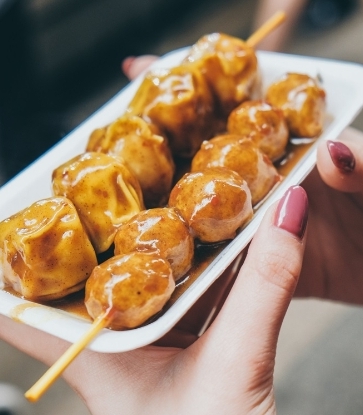
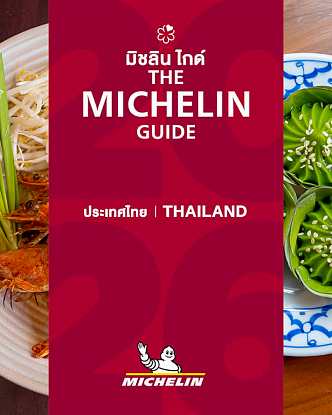

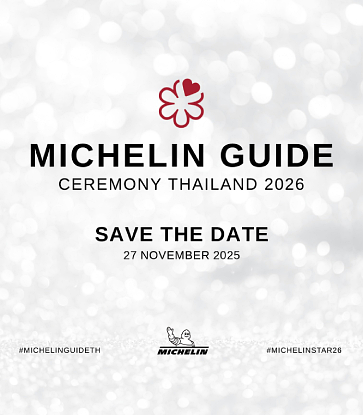
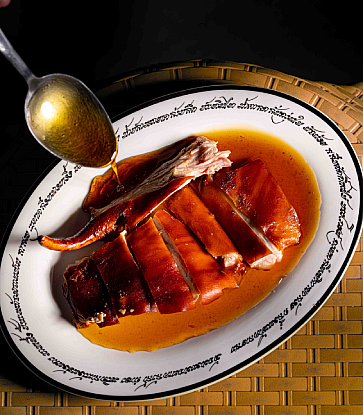
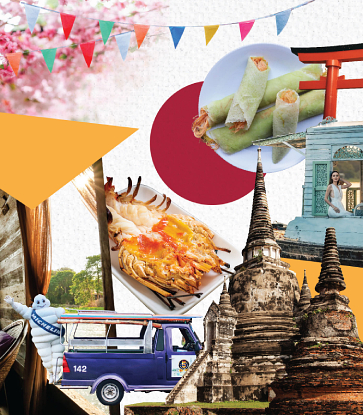
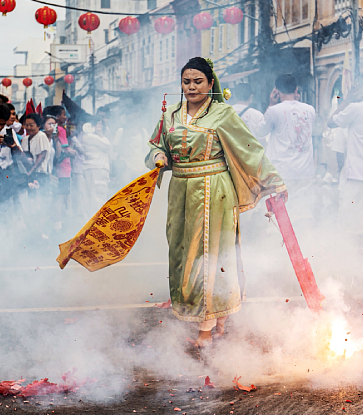
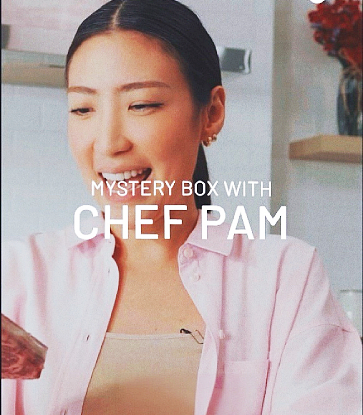
%20-%20Aman%20Nai%20Lert.jpg)
.jpg)
